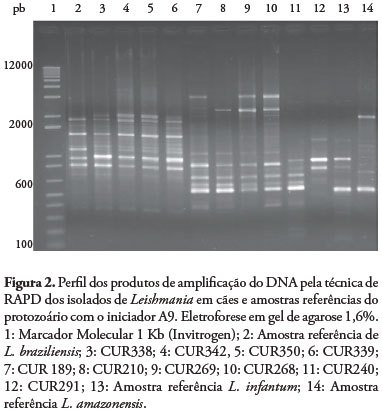The south region is the only area in Brazil that does not present autochthonous cases of visceral leishmaniasis (VL), however, in the state of Parana, dogs and humans have been found showing a VL compatible clinical profile. In view of this problem, the present work aimed at isolating and identifying the parasite and determining the cases autochthony. All animals clinically suspect of VL were clinically evaluated, and had samples of their blood collected for hemoculture (NNN culture medium), serology, PCR and RAPD-PCR, hemogram, and biochemical assays. The dogs presenting VL clinical profile had their lymph nodes and/or bone marrow punctured and their content inoculated in NNN culture medium. The protozoan isolated was identified by PCR and PCR-RAPD. Strains of Leishmania were isolated in 19 out of the 24 studied animals. Fourteen isolates were identified as L. (Leishmania) infantum, and five were L. (Viannia) braziliensis. In the epidemiological analysis, it was possible to determine that all dogs with L. (L.) infantum being allochthonous cases. Leishmaniasis is a zoonose that has the domestic dog as reservoir, the migration ofsuch animals can disseminate the parasite to other regions, provided the agent finds an adequate ecotope and a specific vector (Lutzomyia longipalpis).
Visceral leishmaniasis; Leishmania infantum; dogs; allochthonous cases; epidemiology



